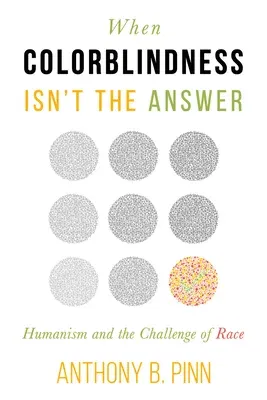Anthony B Pinn
(Author)When Colorblindness Isn't the Answer: Humanism and the Challenge of RacePaperback, 15 May 2017

Qty
1
Turbo
Ships in 2 - 3 days
In Stock
Free Delivery
Cash on Delivery
15 Days
Free Returns
Secure Checkout

Part of Series
Humanism in Practice
Print Length
144 pages
Language
English
Publisher
Pitchstone Publishing
Date Published
15 May 2017
ISBN-10
1634311221
ISBN-13
9781634311229
Description
Product Details
Author:
Book Format:
Paperback
Country of Origin:
US
Date Published:
15 May 2017
Dimensions:
21.34 x
13.97 x
1.27 cm
ISBN-10:
1634311221
ISBN-13:
9781634311229
Language:
English
Pages:
144
Publisher:
Series:
Weight:
199.58 gm